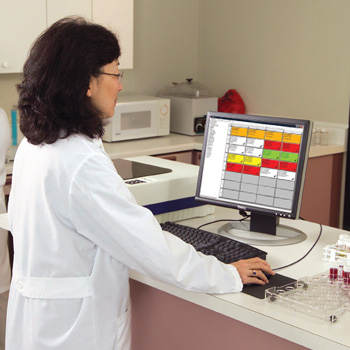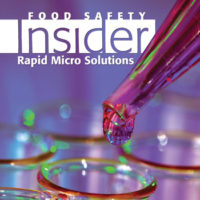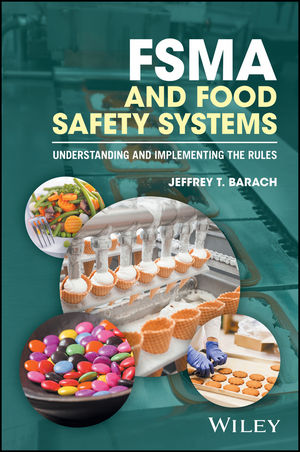Soleris® Technology Offers Quickest and Easiest Spoilage Organism Detection

Fuzzy green bread. Sour dairy products. Slimy bacon. In the hands of consumers, detecting the presence of spoilage organisms can be easy and quick. After the fact, it’s easy to see how spoilage organisms, such as coliforms, Escherichia coli, Enterobacteriaceae, yeast and mold, can reduce shelf life and contribute to the poor quality of a wide variety of food products.
Detecting the presence of those same spoilage organisms in a food processing environment before they have had a chance to multiply exponentially is not so easy. The traditional method of detection can involve highly skilled and trained microbiologists, and long holding times, to ensure a company’s consumers receive the highest quality products possible.
Improving technology offers the food industry a better way. Neogen’s Soleris® rapid microbial detection technology detects spoilage organisms in a fraction of the time and effort of traditional methods.
“Companies that issue certificates of analysis prior to shipment can be forced to hold products as long as 5 days when using traditional methods. In addition, plating and counting methods can be difficult to interpret when dealing with heavily colored products, or those containing food particulates,” said Neogen’s Rob Soule. “Soleris rapid microbiology allows companies to continue to release products with a complete certificate of analysis, while reducing the amount of time required to hold product. Decreasing the holding times of product in inventory can increase throughput and reduces the need for additional warehouse space.”
The heart of the Soleris system is its ready-to-use vial. The unique vial technology measures microbial growth by monitoring pH changes and other biochemical reactions. First, samples of up to 5 mL are added to the vials prefilled with microbial growth medium. The Soleris unit then monitors changes in the chemical characteristics of the medium, and reagents change color as metabolic processes occur.
Optical changes are monitored every 6 minutes in the vial’s agar plug, which is separated from the sample to eliminate interference. Changes in color, expressed as optical units, are sensed by the photo detector and recorded in the computer. The higher the number of organisms, the faster the detection time.
For example, Neogen’s recently AOAC-approved Soleris Direct Yeast and Mold (DYM) test produces accurate results in only 48 hours; conventional yeast and mold methods can take up to 5 days.
“The Soleris yeast and mold test was shown to produce rapid and accurate results—allowing for quicker product releases that improve profitability,” said Neogen’s Soule. “Yeasts and molds are unique, as they represent a large and diverse group of microorganisms that can cause various degrees of deterioration and decomposition of foods. Soleris DYM enables food companies to ensure the quality and shelf life of a wide variety of food products and provides advantages that allow companies to reduce costs through improved efficiency.”
The DYM test offers significant time savings of up to 3 days over the reference procedure while also reducing the amount of technician labor required. The AOAC approval helps companies comply with various Global Food Safety Initiative schemes.
Neogen offers AOAC-RI-approved Soleris tests for total viable count, coliforms, E. coli, and yeast and mold, and also tests for Enterobacteriaceae, lactic acid bacteria, yeast, Staphylococcus, Pseudomonas, ultra-high throughput/extended shelf life testing and Alicyclobacillus.
The company’s system has applications for: spoilage flora analysis, sterility testing, raw materials, finished products, shelf-life prediction, challenge testing/product development, membrane filtration and environmental monitoring.
“The difference in finding a problem with a product in a few hours versus several hours can be significant,” said Soule. “As an example, we worked with a juice manufacturer to calculate the difference a spoilage organism testing time can make. If the manufacturer found an out-of-specification count of a spoilage organism in juice using Soleris in 6 hours, it could lose up to 90,000 gallons of product. Granted, that sounds like a lot. But, if that same manufacturer waited for 24 hours of production time for out-of-specification test results using the traditional method, it could lose up to 360,000 gallons of product—four times as much.”
Neogen conducted multiple studies to evaluate the effectiveness of their system for the detection of a number of spoilage organisms in a variety of commodities. It worked well with the commodities tested. Good correlations were observed between the standard methods and Soleris results, indicating the method provides accurate results in less time. It also requires less hands-on time and is simpler to perform than the standard methods, in addition to the significant time savings. The spike and recovery experiments also correlated well between the traditional methods and the Soleris results.
To obtain copies of validation studies, please contact Neogen. www.neogen.com
Looking for a reprint of this article?
From high-res PDFs to custom plaques, order your copy today!








